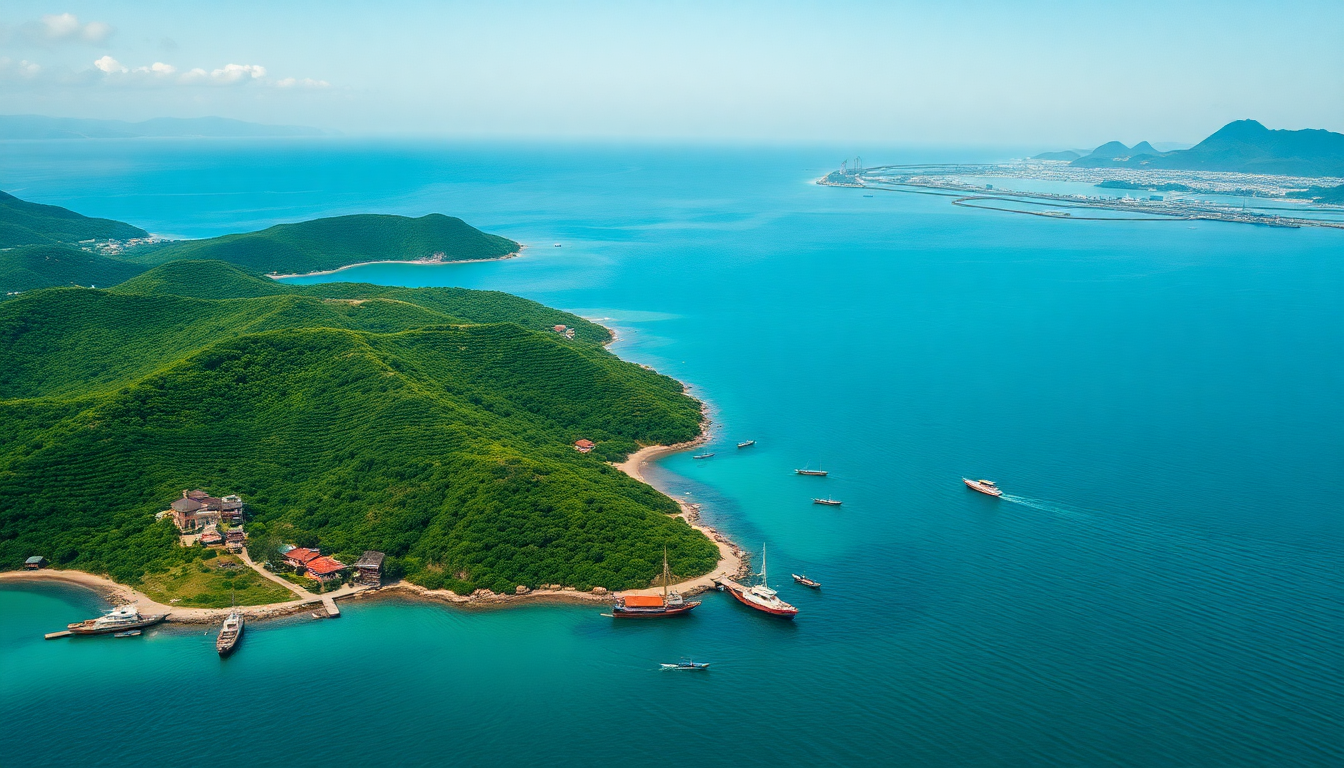Table of Contents
Quemoy Island, often called Kinmen, sits just off the coast of Fujian province in mainland China, acting as a striking emblem of the historical and political tensions between Taiwan and China. Have you ever wondered how geography can influence politics? This island provides a fascinating lens through which to view the complexities of cross-strait relations as it balances the influences of both Taipei and Beijing. Although it is governed by Taipei, Quemoy is only a stone’s throw away from the bustling mainland city of Xiamen, making it a hotspot for geopolitical interactions and local sentiments.
Historical Context and Current Demographics
With around 130,000 residents, Quemoy comprises the main island, Little Quemoy, and several smaller islets. Historically, it was a frontline during the Taiwan Strait conflicts, marked by military forts and a strong military presence. But as the political landscape has shifted, Quemoy has transformed from a heavily militarized zone into a more tranquil community, reflecting the duality of political ideologies in the region. The inscription on the statue of Chiang Kai-shek—“Saviour of the Nation”—serves as a poignant reminder of the island’s complicated past and its current reality.
As we step into 2025, the island showcases a unique identity that straddles two competing political narratives. Local residents often find themselves navigating the ideals promoted by Taipei while also considering the overtures from Beijing. During a recent visit, I noticed how islanders perceive their situation; many expressed a desire for stability and peace rather than becoming pawns in a larger geopolitical chess game. Does that resonate with you? The yearning for a simpler life amidst so much complexity is something we can all understand.
Geopolitical Influences and Local Sentiments
As tensions continue to simmer between Taipei and Beijing, Quemoy serves as a critical barometer for cross-strait relations. The Taiwanese government has historically showcased the island as an example of democratic governance, contrasting it with the socialist framework of mainland China. Yet, the reality on the ground reveals that local sentiments don’t always align with broader political narratives. Interviews with residents provide a nuanced perspective; while many identify with Taiwanese governance, there’s also an undeniable curiosity about the economic opportunities that the mainland offers. How do you think these competing interests shape the lives of those living there?
In recent years, Beijing has ramped up its charm offensive, aiming to integrate Quemoy more closely with the mainland. This includes investments in infrastructure and cultural exchanges designed to create a sense of belonging within the larger Chinese context. However, the effectiveness of these initiatives often meets skepticism from the island’s residents, who cherish their unique identity and the relative freedoms they enjoy under Taiwanese administration. Would you feel the same if you were in their shoes?
Future Prospects and Conclusion
As we look to the future, the fate of Quemoy Island remains uncertain, caught in the delicate balance between Taipei and Beijing. Its strategic location ensures that it will continue to be a focal point for both sides, with potential implications for investment and development. As the political climate evolves, the residents of Quemoy will likely keep adapting, seeking opportunities while striving to maintain their unique cultural identity.
In conclusion, Quemoy Island stands as a testament to the complexities of cross-strait relations. Its residents embody the hopes and challenges faced by many living on the edge of geopolitical tensions. As the world keeps an eye on this unique locale, Quemoy will remain an important player in the ongoing dialogue between Taiwan and China, offering us valuable insights into how history continues to shape contemporary life. Isn’t it fascinating how a small island can reflect such a vast array of human experiences?


